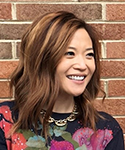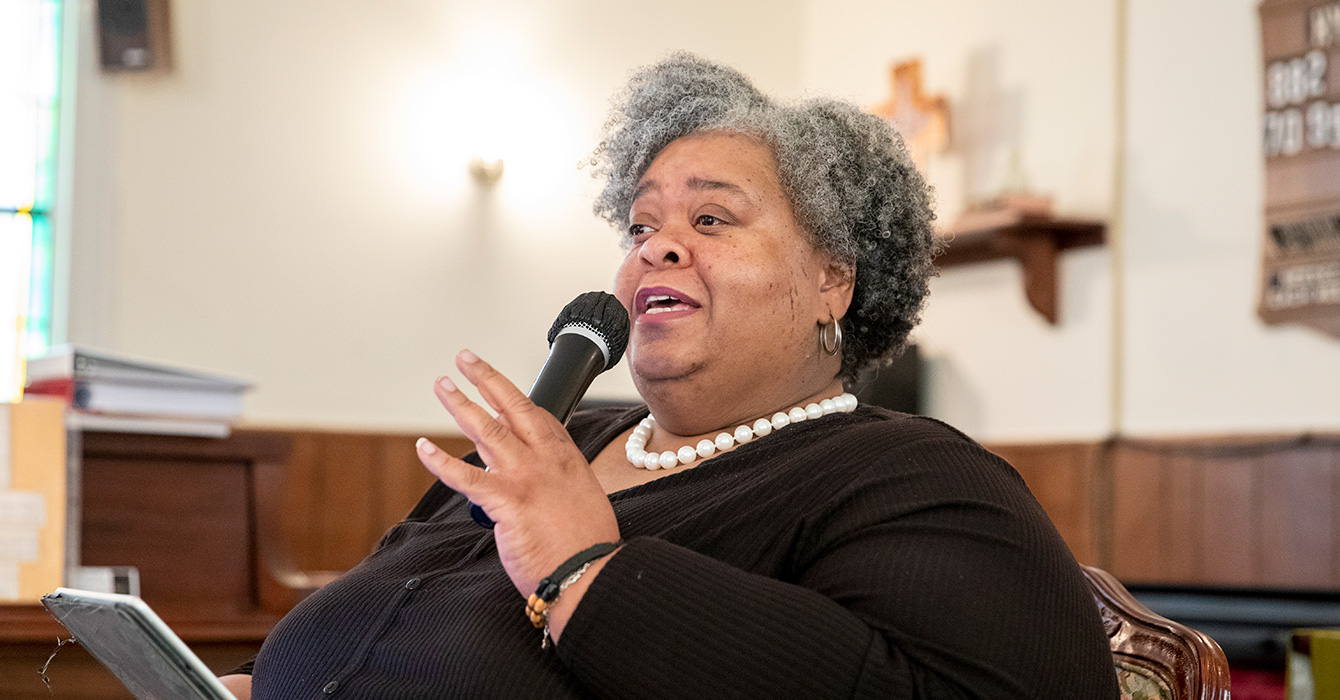Before I ever considered myself a theologian or a ministry leader, I was a part-time worship director of a small church plant in Durham, North Carolina. Although I led worship at Duke events and other Christian conferences across the nation, I identified more as an everyday lay leader and practitioner who just happened to be situated in a town full of theologians and students.
The gift of this location was less about exposure to robust theological scholarship and more about meeting these scholars first as everyday people who had families, mowed their lawns and brought dishes to church potlucks.
This is how I met Richard and Judy Hays as they casually entered our sanctuary one day in 2015 as visitors. I met them not as a powerhouse couple — Richard was former dean of Duke Divinity School and a celebrated New Testament scholar, Judy an associate professor emerita in Duke’s School of Nursing — but as “Richard” and “Judy,” handwritten on their sticker name tags just like everyone else, a nice and polite couple who wanted to worship God on a Sunday morning with a church.
Richard and Judy joined our church after that first visit, around the same time Richard received his pancreatic cancer diagnosis. Even though he underwent a series of rigorous medical treatments, they attended and volunteered at church as faithfully and as often as they could.

Richard emailed me several times about wanting to join the worship team. At that time, I was still developing a framework for how to curate and facilitate a diverse team in worship and was used to pushback about my choices.
Richard, however, was more than happy to join in my experiments, playing an eclectic repertoire of songs on his acoustic guitar with passion. He was affirming, and he validated my leadership, something I had not anticipated at all. Our relationship was cultivated out of this bond and common goal of Christian worship, through its many expressions, and a commitment to growing together in Christian community. He showed up wholeheartedly, even though his physical body was breaking down.
Our relationship grew into somewhat of a mentorship as I navigated the next steps in my ministry journey. By the time my family moved to Chicago and I started working at a large multisite evangelical church, Richard’s cancer was in remission, and we kept in touch. He encouraged me, helping me in my difficulties adjusting to a new city and new church.
At a mutual friend’s wedding reception, he turned to me and boldly declared, “Angie, I see you as a leader in the church. You need to go to seminary.” He gave me the crucial advice to come back to Durham to attend Duke Divinity School and wrote one of my recommendation letters. He even wrote to the admissions office requesting that I be given a full scholarship.
Somewhere along the way, I heard from some LGBTQIA+ friends of mine that reading his seminal book “The Moral Vision of the New Testament” had left them feeling hurt, harmed and invisible. This was not a side of Richard I knew; in fact, we led worship in an affirming congregation with LGBTQIA+ team members.
The book’s prominence gave many the green light to concretize a nonaffirming stance, a reality I had not considered carefully. One friend told me that they even contemplated suicide after reading the book. In listening intently to my friends and other trusted individuals, I felt a growing conviction to speak to Richard the “friend” about Richard the “famous theologian.”
We arranged to meet at a cafe on campus after my classes. Richard had just finished working out, and I was carrying my school bag. I felt bold in my conviction but nervous about asking my friend and mentor such probing questions.
As I gently unfolded the stories of my friends, a look of shock and concern came across his face. “I never intended anyone to be harmed or consider suicide,” he said slowly. As we ended the meeting, not reaching any resolution or plan of action, I felt unsure about having confronted my mentor in this way.
My conversation with Richard was not the first of its kind, nor would it be the last.
Yet this was someone I leaned on for guidance in navigating an evolving ministry career, someone I also considered a friend, and I wondered whether I’d tested the limits of our relationship.
But in fact, Richard leaned heavily into these conversations — and his process of eventually becoming affirming.
The last time I saw Richard in person, during the reemergence from pandemic lockdown in 2022, he and Judy had moved to Nashville. The cancer had come back. During breakfast, he told me about the book he was co-writing with his son.
This last fall, that book, titled “The Widening of God’s Mercy: Sexuality Within the Biblical Story,” came out. In the book and in subsequent interviews he gave at the time of its publishing, Richard admitted that he had been wrong about the church blessing and including LGBTQIA+ folks. Early this January, Richard passed away. When we met in Nashville, he said he didn’t want to leave this earth being known as anti-LGBTQ, and I believe him.
As I reflect on my friend Richard’s life and his mentorship, one aspect that strikes me is how our paths intersected. We met each other at a crossroads in our respective ministries and lives, and without Richard, I would not have followed my calling to go to seminary and continue my ministry in the same way.
This past Friday, I remembered Richard again by helping plan and play music at his memorial service at Duke Chapel. I will remember him fondly, as a musician, a friend and a mentor. Like a good mentor, he listened — to me and to others — becoming willing to change his mind on something so crucial to the church.









